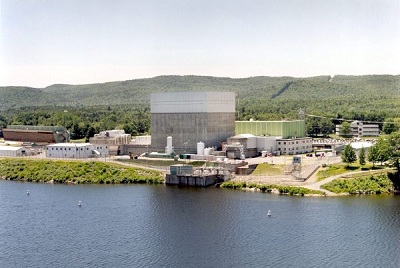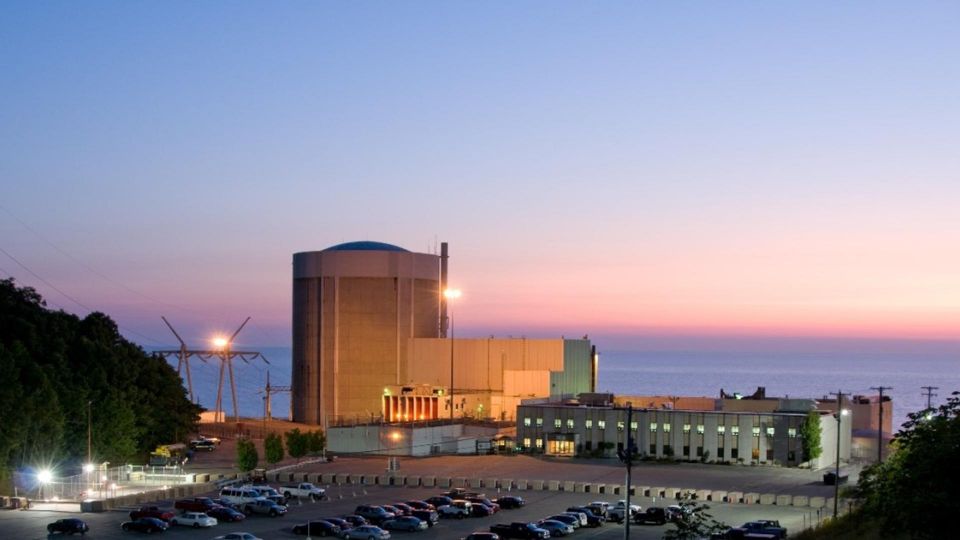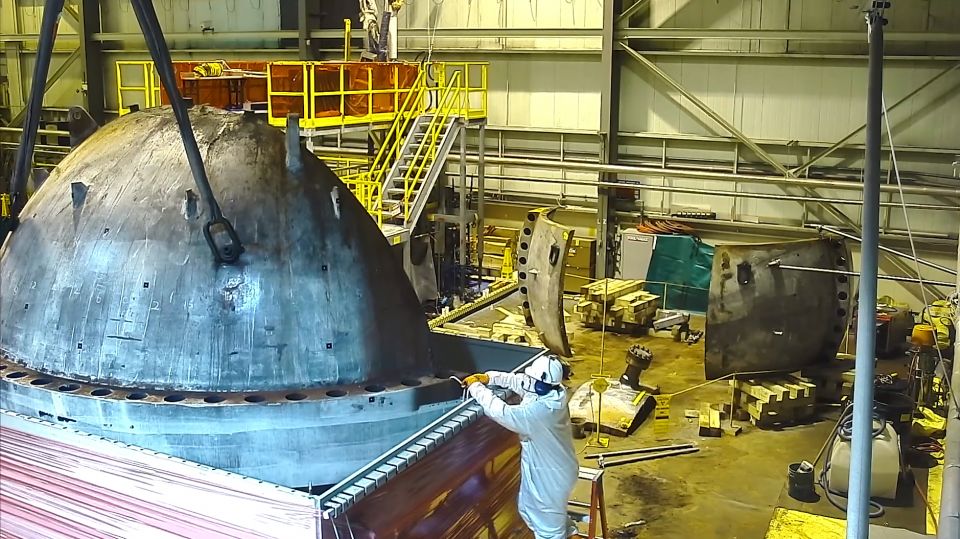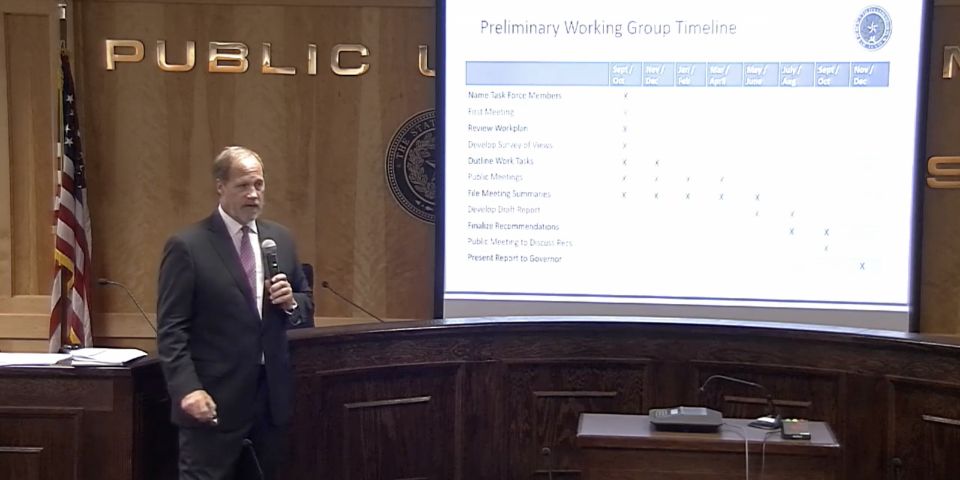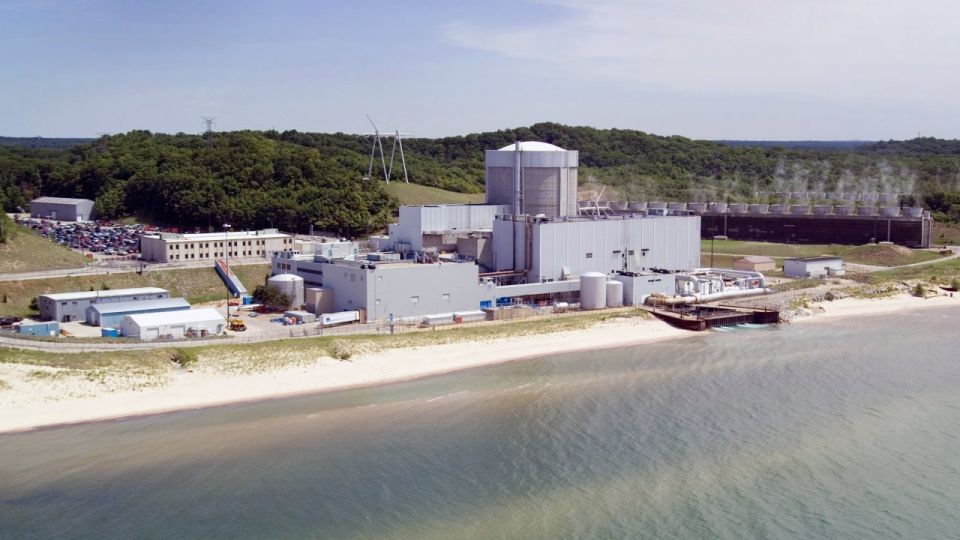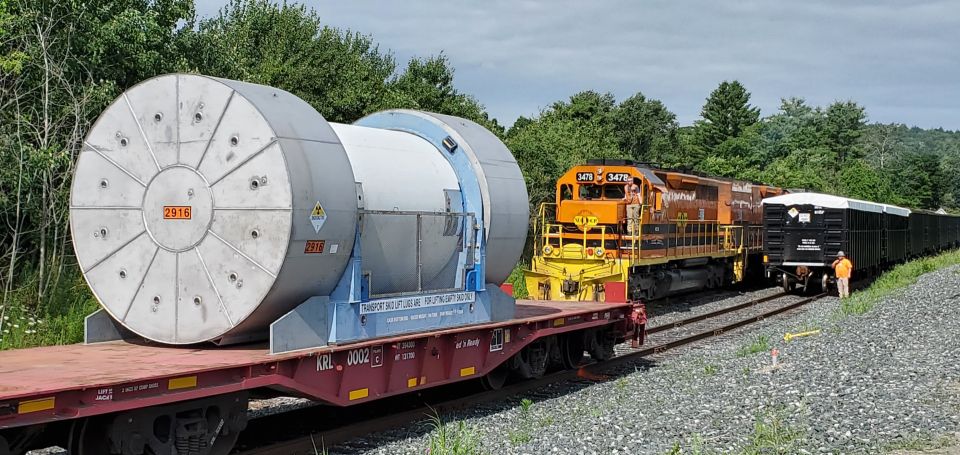Vermont Weather Gets Colder – Vermont Yankee Politics Continue Hot
 Some long-awaited events related to the continued operation of the Vermont Yankee nuclear power plant took place toward the end of 2012, such as the trial of some members of the Shut It Down Affinity Group (known to the media as the "nuclear grannies") who have been arrested many times for blocking Vermont Yankee's gates. Some unexpected events have occurred as well, such as a Public Service Board ruling and a brand new lawsuit by a long-term intervenor.
Some long-awaited events related to the continued operation of the Vermont Yankee nuclear power plant took place toward the end of 2012, such as the trial of some members of the Shut It Down Affinity Group (known to the media as the "nuclear grannies") who have been arrested many times for blocking Vermont Yankee's gates. Some unexpected events have occurred as well, such as a Public Service Board ruling and a brand new lawsuit by a long-term intervenor.
Before the Public Service Board
The Vermont Yankee plant's US Nuclear Regulatory Commission license was renewed for twenty years in March 2012. However, the plant also requires a Certificate of Public Good from the state of Vermont in order to operate. The original Certificate expired on the same day as the original NRC license, but the plant continues to operate under a Federal Court injunction which would prevent the state from shutting the plant down.
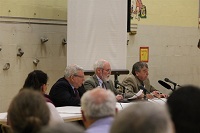
Public Service Board members David Coen, Commissioner John Volz, and John Burke, court reporter at left
In the spring, Entergy applied to the Public Service Board of Vermont to change orders concerning the plant's end dates -- to update the expiration dates of Board orders on sale of the plant to Entergy, and approval of Dry Cask Storage. These expiration dates are the same as the Certificate of Public Good, so on paper the plant is operating in violation of state law.
The Board decided to open a new docket and start over again on the Certificate of Public Good process, after the Federal Court decision and injunction. On November 29, the Board denied Entergy's request. This denial was reported by some media as the Board slapping down Entergy, making it sound like a major blow to the plant. In fact, the Board stated in its ruling that the ruling was narrow, and did not foretell how it would rule on the new process.
The Board's ruling inspired the New England Coalition to file suit in Vermont Supreme Court asking the court to enforce the expiration dates and shut the plant down. The suit is under review. The suit of course generated media coverage, and must have inspired opponents, which appears to be the purpose. However, from a citizens' viewpoint it is ridiculous to ask the state court to act contrary to a Federal Court injunction. We'll see. For those who wish to pore through the legal details, Yes Vermont Yankee has a great detailed post.
New Hampshire Public Radio

Laura Knoy, host of The Exchange
New Hampshire Public radio's popular call-in interview program "The Exchange" explores topics of public concern, and has done many programs over the years on nuclear power, Vermont Yankee, and Seabrook plant in New Hampshire. I was already scheduled to be on the program before the Public Service Board's finding and the lawsuit, so my appearance on December 6 was quite timely. I was in the studio, while Ray Shadis, technical advisor to the New England Coalition, and John Dillon, Vermont Public Radio reporter, were call-in guests. Listen online
On the program, I placed the Vermont Yankee issue in the context of a Congressional Public Policy decision, which found that a minute local risk was worth the public good for the country as a whole, where the policy objective is replacing coal burning for power generation. The Coalition's new tack is that natural gas plants can be built quickly, so these should be used instead of nuclear plants, which take a longer time to bring into service. The Coalition judges that the gas plants' release of carbon dioxide is only half that of coal plants... so they are preferable to nuclear power (which emit almost no carbon dioxide at all!).
In response to the host's question about political support for nuclear power, the Coalition admitted that nuclear power indeed does have support from a majority of Congress. In kind, the host asked me, why not give up on nuclear power since it seems "too difficult" in the New England region. I replied that companies in New England have indeed given up for the time being -- no new plants are proposed here, while they are under construction in other parts of the country.
On Trial at Last
The Shut It Down Affinity Group have been actively protesting against Vermont Yankee for years by blocking the plant gates and getting arrested. Some members recently went on trial for the very first time (in the past, prosecutors have not felt it worthwhile to waste court time while providing a public protest platform). This time, the "nuclear grannies" protest, which included chaining themselves to the gates, took place two days after hurricane Irene had devastated Vermont (the "grannies" actually hail from Massachusetts). Local first responders were busy helping hurricane victims, but were interrupted by having to arrest the grannies again.
A jury found them guilty. The judge fined them, even though some wanted to go to jail instead. Some said they would not pay, and the judge warned that the order would be turned over to a collection agency, with fees added. The local Brattleboro Reformer editorialized against the grannies.
A 'Small' Anniversary
On December 2, on the anniversary of the first man-made chain reaction, the calendar for the Vermont Yankee opponent coalition SAGE Alliance listed a protest at the plant gates. Four showed up for less than an hour.
And A Positive End to the Year
Vermont Yankee's site vice President, Chris Wamser, issued a press release thanking all the supporters who came to and spoke at the Public Service Board's Public Input sessions. One was face-to-face, and the other via multi-site interactive television. The press carried the release, which is certainly a positive note.
Best wishes to all in the New Year!

Shaffer
Howard Shaffer has been an ANS member for 35 years. He has contributed to ASME and ANS Standards committees, ANS committees, national meeting staffs, and his local section, and was the 2001 ANS Congressional Fellow. He is a current member of the ANS Public Information Committee and consults in nuclear public outreach.
He is Coordinator for the Vermont Grassroots Project. Shaffer holds a BSEE from Duke University and an MSNE from MIT. He is a regular contributor to the ANS Nuclear Cafe.


